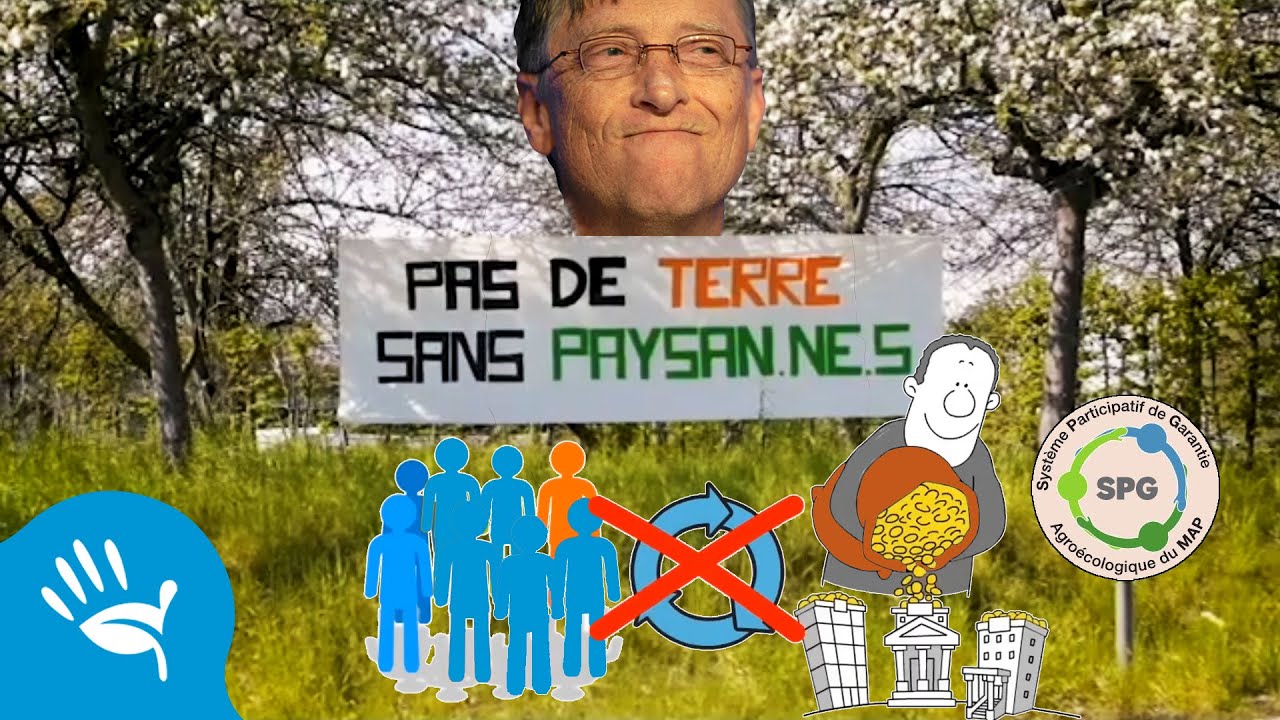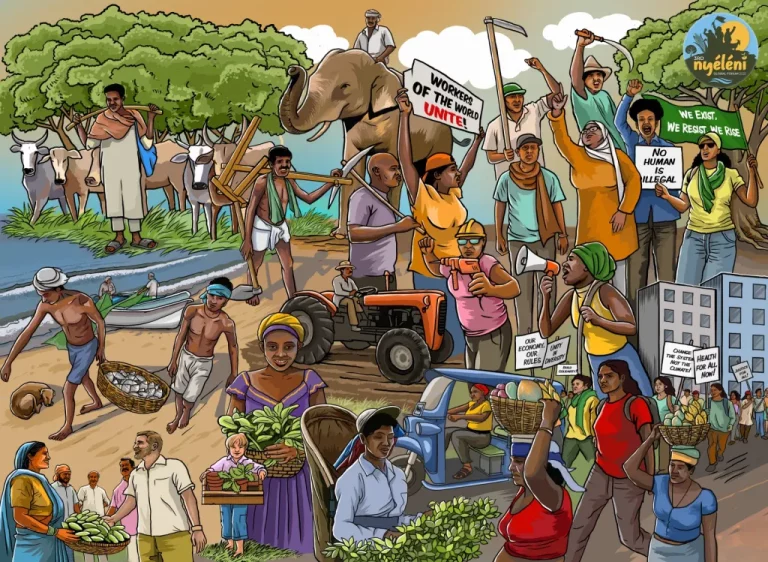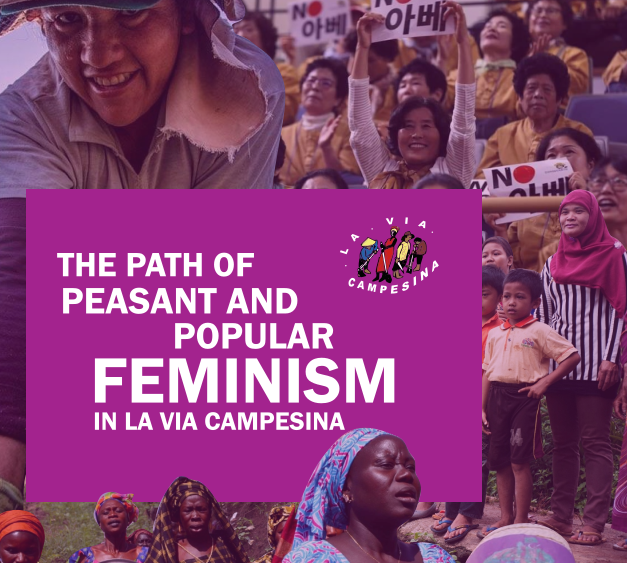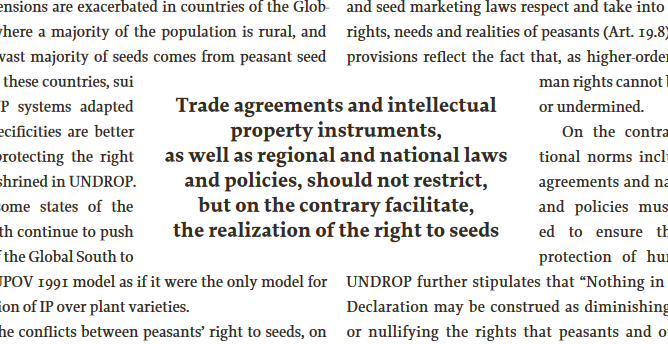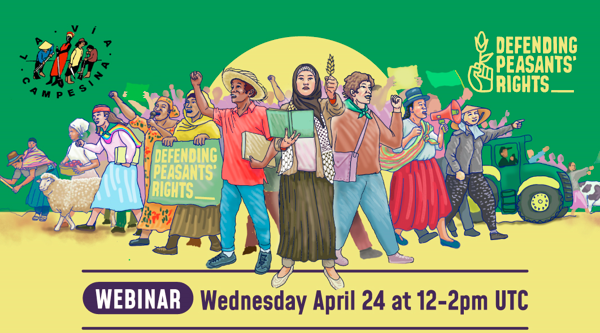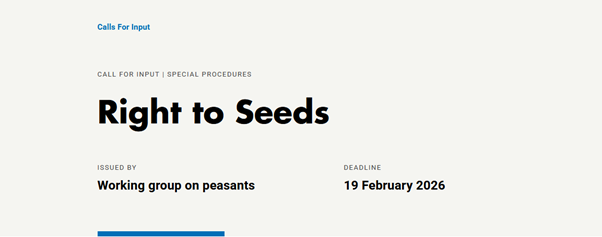“UNDROP from local to global!” – Interview with Serge Peereboom from MAP Belgium
Serge Peereboom describes himself as a “city child who moved to the countryside to become a peasant market gardener. A peasant resisting in a world that moves too fast and forgets the true values of life”. He is a member of the Mouvement d’Action Paysanne (MAP) in Belgium, and played an active role in drafting the MAP’s Peasant Town Charter on UNDROP. In this interview, he explains MAP’s actions, the challenges facing peasants in Belgium and the strategy behind the Charter.
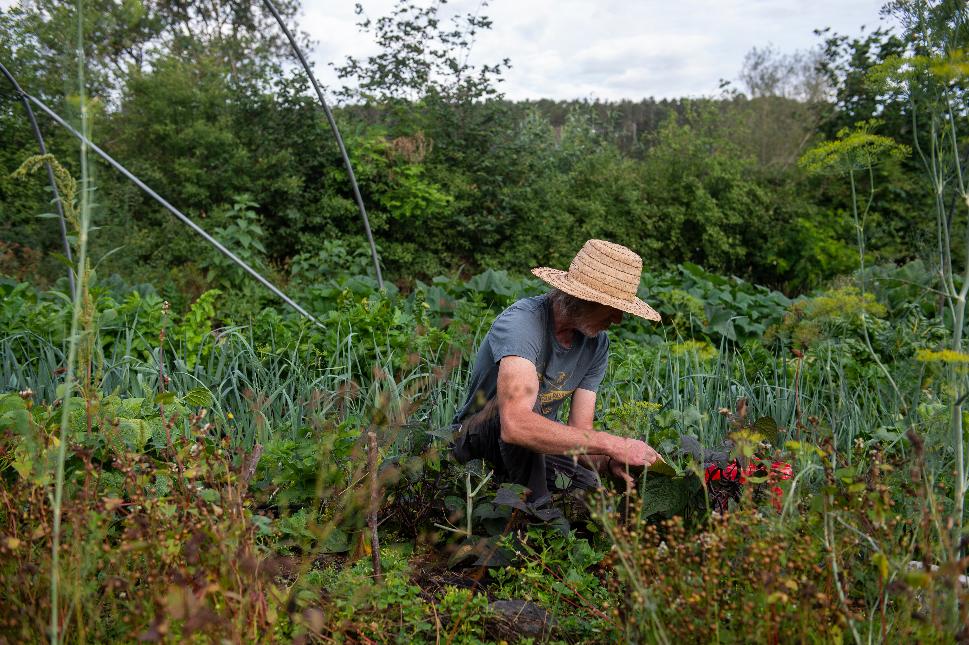
Can you tell us about your organization, MAP, its main battlefronts, and the challenges facing peasants in Belgium?
Mouvement d’Action Paysanne (MAP) is a Belgian association of peasants and citizens. We created the ” Independent Peasant School “, based on a network of farm-schools to pass on peasant knowledge and know-how. With MAP, we defend sustainable peasant agriculture and food sovereignty based on autonomy and resilience. We’re talking here not just about technical autonomy, but also decision-making, operational and group autonomy, i.e. the ability to organize within a peasant network with its own mode of operation and interdependence. And we want a resilient agriculture to face the many current crises, be they social, energy, climatic or economic.
Since 2015, we have 5 priorities: to defend peasant rights through changes in the law, to produce and disseminate a strong peasant discourse, to organize peasants, to train (future) peasants so that they can be agents of change, and finally to cultivate and re-enchant the peasant movement.
We are also actively involved in the Participatory Guarantee System (SPG). Faced with organic labels that no longer mean much, and to bring consumers and producers closer together, we propose the SPG. It’s a self-monitoring tool, made up of a welcoming farm, a peasant from the same sector, a group of eaters and an ambassador. Based on trust, a network of concerned players and exchanges of knowledge, it enables us to define objectives together to move towards agroecology, to co-construct them and to evaluate progress regularly and jointly.
As far as the challenges are concerned, for us the central issue is peasant incomes. Various parameters make it difficult to obtain a fair income: high production costs versus imported products produced at very low cost, less arable land available due to overbuilding, non-food uses such as agri-voltaics, agrofuels and carbon-farming. As far as land is concerned, prices per hectare are on the rise, notably due to land grabs by large industrial groups or private investors who are going into industrial farming.
You have drafted and published a “Peasant Town Charter”. What is it and what are its objectives?

The United Nations has drawn up a Declaration on the Rights of Peasants, or UNDROP. Belgium is involved in a commission to implement this declaration in Europe, but we realize that few people, citizens or politicians, are familiar with it. Our aim is therefore to make the Declaration of Peasant Rights known to the various levels of government, starting with the one most accessible to citizens: the municipalities. And to motivate them to implement the UNDROP.
We have therefore drawn up the Peasant Town Charter, which sets out the rights enshrined in UNDROP, along with proposals for their practical implementation at local level. We are distributing it to all municipalities and to candidates in this autumn’s municipal elections, to inspire and motivate them to take a stand and make a commitment. With this charter, we’re aiming for UNDROP, from global to local!
“It is the local political bodies, the municipalities and their elected representatives, who have the power, duty and responsibility to involve all citizens in implementing concrete, local measures.“
Charte des Communes Paysannes, MAP, p7
For the 2018 communal elections, MAP had already chosen to challenge the local political authorities (the most accessible for citizens). We had drafted a charter based on our findings on peasant farming and giving levers for action at the communal level. We repeated the experience, this time highlighting the Declaration of peasants’ rights and using it as a basis for proposing actions.
How will you promote the charter among elected representatives?
Via ambassadors to relay the charter in their towns. There’s nothing like direct contact with motivated citizens to get the message across to local authorities. A video will be released shortly.
And let’s not forget the Charter meeting at the Little Fair. Every year, we organize the Little Fair of peasant agriculture, a showcase for peasant agroecology and an alternative to the Big Agricultural Fair of Libramont, a commercial, agro-industrial and ultra-subsidized fair that takes place on the same weekend in the same region. The Little Fair is therefore the ideal place to introduce UNDROP to as many visitors as possible. Too few people know about the Declaration.
Can you give us a few examples of the rights enshrined in UNDROP that you have used in your Charter, adapting them to the municipal context and mandate?
In the Charter, we take up 10 articles from UNDROP: article 2 obligations of States, article 9 freedom of association, article 10 right to participation, article 15 right to food and food sovereignty, article 16 right to a decent income and to the means of production, article 17 right to land, article 18 right to the environment, article 19 right to seeds, article 20 right to biodiversity and article 25 right to education and training.
The right for which we are making the most proposals is the right to food and food sovereignty. We start with broad proposals, such as informing citizens of their rights, and then move on to more concrete and specific ones. We for example propose that communes carry out assessments of their food and agricultural autonomy, of the needs of their residents and of the means at their disposal. The next step we put forward is the collective construction, with local residents, of food-related objectives for the commune. This can lead, for example, to the creation of a healthy, local food aid system, or local, peasant catering. For each stage, we provide details of the procedures involved, as well as examples of towns that have already put these proposals into practice.
We can also talk about the right to land: access to land is a central issue today. The pillars we propose to communes are to encourage peasant farms to be set up, and to protect food-producing land. I can give precise examples of actions that a municipality can take, such as making communal land available, allowing the installation of light housing, prohibiting overbuilding and seeking out vacant housing.
We have also chosen political rights to highlight: freedom of association and the right to participation. In both cases, the municipalities can implement a number of actions.
How do you see the strategy for promoting and implementing UNDROP at national level? In other words, how does this Charter – addressed specifically to local/communal authorities – fit in with the advocacy strategy at national authority level in Belgium?
Completing the circle: from local to global! We hope that the local authorities will pass on the Charter and UNDROP to the regional and national levels. Keeping track of all this is going to require a lot of hard work, and April 17, International Day of Peasant Struggles, will be the occasion for meetings on UNDROP, as well as a time to take stock of actions based on the Charter. But MAP needs support to make this happen.
We’re also working with partners such as the Fian Belgique organization, to spread UNDROP and the Charter to all the communes in Wallonia and Brussels.
We also think it would be a good idea to publicize UNDROP in the legal sector and at law schools and universities, among future jurists, lawyers, judges… the question is how!
What role do you see peasants and citizens playing in spreading UNDROP?
We have a MAP campaign called ‘Je suis paysan.ne’ (I am a peasant), which is essential for connecting peasants and citizens: we are all peasants! Why are we peasants? Because our grandparents were peasants, but above all because we all have to feed ourselves every day! The question of food, and therefore of peasantry, now crystallizes all the major issues facing our society: the transmission of knowledge and know-how, health, social justice, nature protection, climate and energy challenges, etc.
It is urgent to build our food sovereignty. All citizens have an important role to play in making our rights known. It’s our duty!

